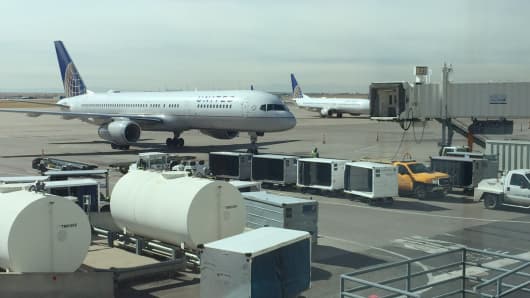A story on Inc.com tells of Bruce
Mainzer’s disgust when he helped his wife, Beth Shadur, find a seat online for
a flight from Chicago to New York. She ended up paying $76 extra for the window
seat she wanted. "It shows sophisticated price gouging, and preying on the
fears of inexperienced fliers like my wife,” said Mainzer. “I believe that is
really taking advantage of people."

According to writer Chris Matyszczyk, “Mainzer
was surprised that a system that was once used merely to keep a few seats
blocked for the high-falutin' flyers -- of which he's one -- is now being used
wholesale to extract the maximum algorithmically possible from every single
customer.”
Keep in mind that Mr. Mainzer is now a consultant
helping hospitality businesses maximize new sources of revenue!
But that’s only the beginning. The writer, Matyszczyk, says airlines are now examining
software that chooses to charge people not according to where they're
flying or even what class of seat they're interested in, but according
to who they are and their travel/shopping/browsing
habits.
Using publicly available data, he writes, “It's
entirely conceivable that an airline will know, the minute you land on
its website, the precise reason why you're traveling, how desperate you
are, how much you've paid for all your previous flights in the last five years,
how great your net worth might be, and, who knows, whom you email about your
more intimate affairs.”
Consumer watchdogs are concerned, and you should
be, too. Transparency is going out the window, and you’ll have to work harder
than ever to make sure you get the lowest prices whenever you shop online.
Unless, of course, governments or consumer-watchdog groups can convince big
marketers that conning your customers is not the right way to build a business –
let alone a respected brand.
New Management Welcome!

